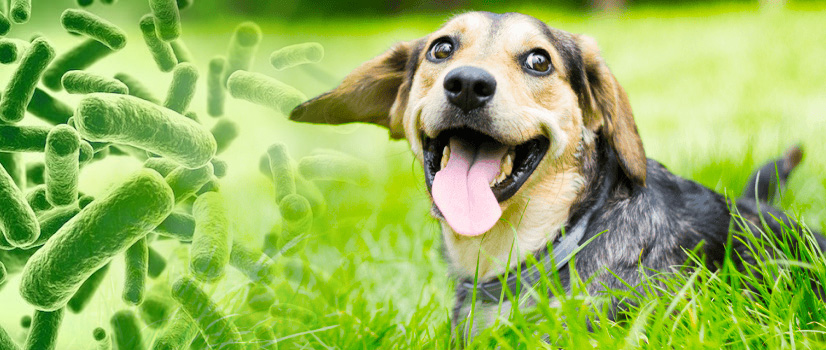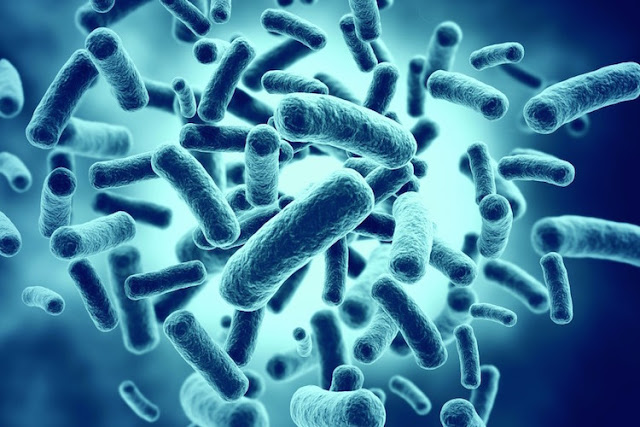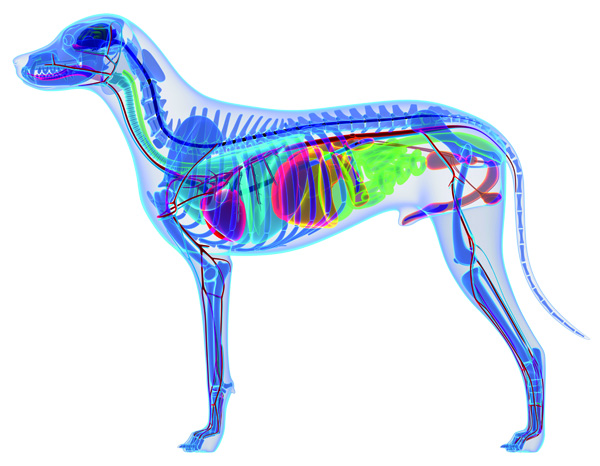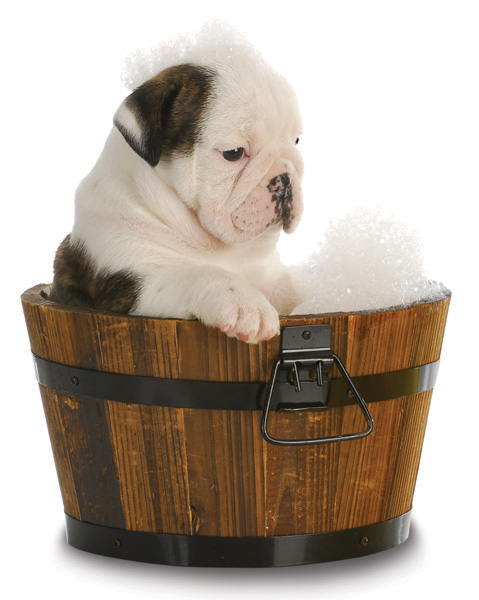
As dog owners, you know our furry little friends will put pretty much anything and everything in their mouths. From the food in their bowl (and any other bowl put in front of them) to the most unpleasant substances they can find in our backyards, it all goes down the hatch. The bad news is, sometimes what our dogs eat doesn't agree with them. And…, you know what happens next: a very uncomfortable, and unhappy, pup.

Gastrointestinal problems like diarrhea are all too common in dogs, and much of it is often caused by eating something that doesn't agree with them. There's only so much a dog's digestive system can handle! But don't worry, there are ways to protect the health of our favorite four-legged trash disposals. One of the best is through the use of probiotics.
What Are Probiotics?
Probiotics sound as if they're some new cutting-edge health supplement, don't they? The truth is, though, that probiotics have been around for a long time: it's just a fancy term for the kinds of beneficial active bacteria that you can find in certain foods, like yogurt, for example. They're also the same types of bacteria that are naturally present inside many animals — including you and even your dog!

Probiotic bacteria do a whole heap of things for you. With most of them in your gastrointestinal tract, their primary role is to help you break down the food you eat into the nutrients your body needs to stay healthy. Many doctors recommend taking probiotic supplements to help restore a good balance of bacteria in your gut, especially if you've been fighting off an illness that might have affected that balance.
Protecting Your Dog's Digestive and Immune Systems
Probiotic bacteria work pretty much the same in your dog's gastrointestinal tract as they do in yours. They help your pooch digest everything that ends up in your stomach (good or bad), which helps keep their insides firing on all cylinders. If their internal bacteria are out of balance, though, they might have problems doing their job -- and in that case, guess what? Your precious little pup that got into the garbage and ate half a chicken carcass might end up with more than they bargained for!

Of course, gut bacteria do more than facilitate digestion — they also provide a layer of protection to the immune system. This means that when your gut bacteria balance is off (or your dog's), you're more likely to get sick in general. This can lead to even more gastrointestinal distress or even other types of illnesses like colds, coughs, or anything else you can think of. This makes adding probiotics to your dog's diet a good idea, one that's often recommended by veterinarians.
Choosing Good Probiotics for Dogs
It should be clear by now that probiotics for dogs can help keep your pet healthier and happier. But there are a few questions remaining at this point. What types of probiotics are best for dogs? How much should you give your pet daily? And finally, how do you convince them to eat probiotics?
The truth is that not every probiotic product for dogs is created equal. Each product will be in a different form, such as in powders, chews or dog treats, already added to some dog foods, or even in dog shampoo. They often contain different probiotic strains as well, with the most common being Lactobacillus acidophilus, the same bacteria that are in many probiotic products meant for humans. Other probiotic strains that have been studied for their positive effect on dogs include:
- Enterococcus faecium
- Lactobacillus casei
- Lactobacillus plantarum
- Bifidobacterium bifidum
- Bifidobacterium animalis
There are many other types of probiotics for dogs out there, so for the best guidance always consult your veterinarian to hear what they think would be best suited for your dog!
Getting the Most Out of Your Probiotics For Dogs
You can't protect your pet's health unless you can get those beneficial probiotics to their destination on the inside. This can be a challenge if you have a picky eater or if your dog has a history of knowing when the "treats" you're giving them are just thinly-veiled medications. It's ironic that your precious little doggy, who enjoys rolling around in whatever unpleasantries they may find in the backyard, will turn their nose up at healthy food, but nevertheless you may need to experiment with a few different types of delivery methods to see which one your dog likes (or at least tolerates).

Shampoo is an effective way to get your dog probiotics especially if you have a picky eater, or your dog already gets too many treats. Probiotics will remain attached to hair follicles after cleaning and then be ingested when your dog licks itself. An added benefit is that probiotics can also consume debris and animal body secretions on the outside for a healthier coat. A quality veterinary formulated shampoo with probiotics can help your pet be clean on the outside and healthy on the inside.
There's something else you should keep in mind when choosing a good probiotic for your dog, and that's whether those probiotics are going to survive long enough to make it to where they need to be. The bacteria in probiotic products are alive, and they need to remain that way. You will need to check use-by dates carefully and also ensure you're not storing any probiotics for dogs in places where there's no climate control. In other words, don't leave a bag of probiotic dog food in a hot car for a few hours and expect those helpful bacteria to survive!
The Last Word on Probiotics for Dogs
Probiotics for dogs do much of the same things that probiotics do for us. They strengthen good bacteria in our intestinal tract, and that makes it easier to digest food, process it, and extract the nutrients our bodies need to stay healthy. With gut bacteria also playing such a strong role in our immune systems, probiotics also help reinforce our immune response, helping us stay healthy -- or at least recover from illness sooner than we would otherwise.
If your dog has a history of getting into everything and ending up with some severe tummy upset, or even if you just want to make sure they stay as healthy as possible, then probiotics for dogs might be just the thing for your pampered pooch. Make sure to talk to your veterinarian first so you can get their informed opinion on what you want in a probiotic for your dog, and you'll be well on your way to providing your four-footed companion better canine health!
PetSuds® is the 1st and only patented (U.S. Patent No. 10,111,829) veterinarian formulated probiotic dog shampoo on the market. It is available both retail and wholesale, shipping directly to you via Alpha Tech Pet.